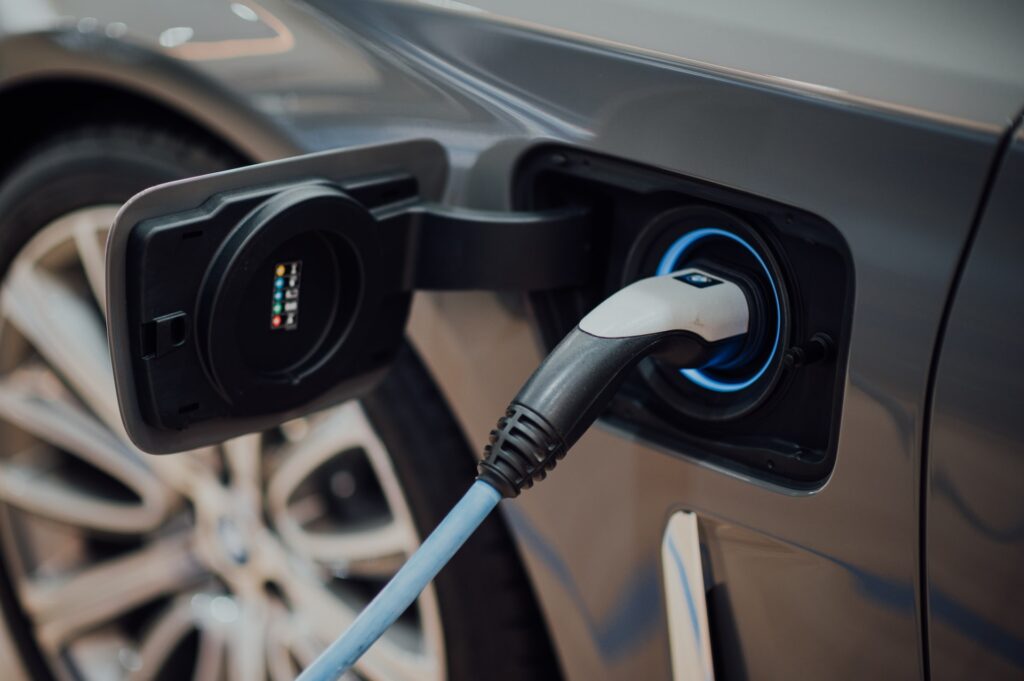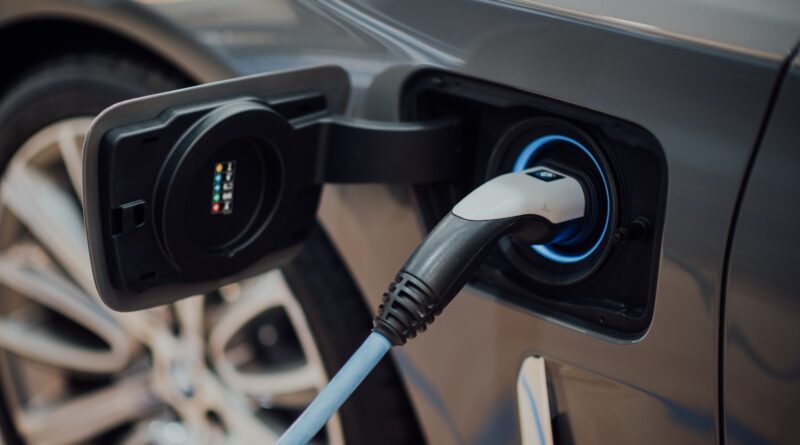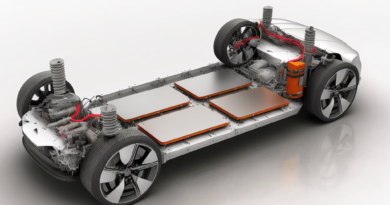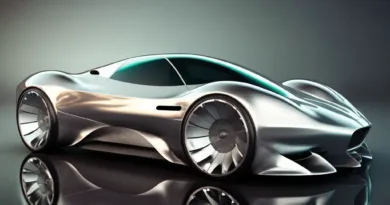Electric and Hybrid Vehicles Notes: A Comprehensive Guide to Their Features and Benefits
What Are Electric Vehicles?

Electric vehicles (EVs) are vehicles that run on electricity (electric power) instead of gasoline or diesel fuel. The vehicles are powered by one or more electric motors that use electricity stored in batteries as their primary source of energy. The batteries are charged by plugging the vehicle into an electric power source, such as a charging station or a wall outlet. The electricity is used to power the vehicle’s electric motor, which turns the wheels to propel the vehicle forward.
There are various types of electric vehicles, including battery electric vehicles (BEVs), which run solely on electric power, and plug-in hybrid electric vehicles (PHEVs), which combine an electric motor with an internal combustion engine and can operate on either electric power or gasoline. Electric vehicles are becoming increasingly popular as more consumers look for ways to reduce their carbon footprint and save money on fuel costs thus reducing the overall cost of vehicle ownership in the long run..
What are Hybrid Vehicles?

Hybrid vehicles are vehicles that use two or more power sources to propel the vehicle. Typically, hybrid vehicles use a combination of an internal combustion engine (gasoline or diesel) and an electric motor to provide propulsion. The electric motor is powered by a rechargeable battery that is charged through regenerative braking or by the internal combustion engine.
Hybrid vehicles can operate in various modes
1. Using only the electric motor
2. Using only the internal combustion engine
3. A combination of the above
The above modes can be selected based on the driving conditions and the battery’s state of charge. The primary advantage of hybrid vehicles is their increased fuel efficiency compared to conventional gasoline-powered vehicles, which can lead to lower fuel costs and reduced environmental impact. There are several types of hybrid vehicles, including conventional hybrids, plug-in hybrids, and mild hybrids, each with its own unique characteristics and benefits. Hybrid vehicles are becoming increasingly popular as more consumers look for ways to reduce their carbon footprint while still maintaining the convenience and reliability of a traditional gasoline-powered vehicle.
Features Comparison of Hybrid and Electric Vehicles
| Feature | Hybrid Vehicle | Electric Vehicle |
| Power source | Gasoline engine + electric motor + battery | Electric motor + battery |
| Driving range | Typically 400-500 miles | Typically 100-300 miles |
| Fuel efficiency | Typically better than gasoline-powered cars, but lower than pure electric vehicles | Much better than gasoline-powered cars |
| Emissions | Lower emissions than gasoline-powered cars, but still produce some greenhouse gases | Zero emissions |
| Charging time | No charging required, gasoline refueling time typically less than 5 minutes | Requires charging, which can take several hours |
| Charging options | No need for charging infrastructure | Requires charging infrastructure, which may not be widely available everywhere |
| Price | Typically less expensive than electric vehicles | Typically more expensive than gasoline-powered cars, but price is decreasing |
| Maintenance | More maintenance required than electric vehicles due to the gasoline engine | Less maintenance required than gasoline-powered cars, but may require specialized maintenance |
Advantages of electric vehicles:
Zero emissions
Electric vehicles produce zero emissions, which means they do not contribute to air pollution or greenhouse gases.
Lower operating costs
Electric vehicles are much more efficient than gasoline-powered cars, which means they require less fuel and have lower operating costs over time.
Quiet and smooth
Electric vehicles operate quietly and smoothly, providing a more comfortable driving experience than gasoline-powered cars.
Performance
Electric vehicles can provide instant torque and acceleration, which can provide a more exhilarating driving experience compared to gasoline-powered cars.
Energy security
Electric vehicles can help reduce dependence on foreign oil and increase energy security by relying on domestically-produced electricity.
Advantages of hybrid vehicles:
Greater driving range
Hybrid vehicles have a longer driving range than electric vehicles because they have the option of using gasoline to power the car.
Fuel efficiency
Hybrid vehicles are more fuel-efficient than gasoline-powered cars because they use a combination of gasoline and electric power to operate.
Lower emissions
Hybrid vehicles produce lower emissions than gasoline-powered cars, which means they have a smaller environmental impact.
No charging infrastructure required
Hybrid vehicles do not require charging infrastructure, which means they can be refueled at traditional gasoline stations.
Lower price
Hybrid vehicles are typically less expensive than electric vehicles, which can make them a more affordable option for some consumers.
Less maintenance
Hybrid vehicles require less maintenance than gasoline-powered cars because the electric motor provides some of the power and reduces wear and tear on the gasoline engine.
Disadvantages of electric vehicles:
Limited driving range
Electric vehicles have a limited driving range, which can be a concern for some consumers who need to travel long distances. While the driving range of electric vehicles is improving with advances in battery technology, it is still less than that of gasoline-powered vehicles.
Charging time and infrastructure
Electric vehicles require charging, which can take several hours depending on the type of charger used. Additionally, access to charging infrastructure may be limited, which can be a concern for those who do not have access to charging stations at home or work.
Cost
Electric vehicles can be more expensive than gasoline-powered vehicles due to the cost of batteries and other components. While prices are decreasing as battery technology improves and production volumes increase, the upfront cost of an electric vehicle can still be a barrier for some consumers.
Disadvantages of hybrid vehicles:
Fuel efficiency
While hybrid vehicles are more fuel-efficient than gasoline-powered vehicles, they are less efficient than electric vehicles. This means that hybrid vehicles still rely on gasoline, which can be a concern for those looking to reduce their environmental impact.
Complexity
Hybrid vehicles have a more complex powertrain than gasoline-powered vehicles, which can make maintenance and repairs more complicated and expensive.
Performance
While hybrid vehicles can provide better fuel efficiency, they may not provide the same level of performance as gasoline-powered vehicles or pure electric vehicles. This can be a concern for some consumers who prioritize driving experience.
Top 5 hybrid cars in North America – 2023
- 2023 Honda Accord Hybrid
- 2023 Hyundai Sonata Hybrid
- 2022 Toyota Avalon Hybrid
- 2023 Toyota Camry Hybrid
- 2022 Honda Insight
Top 5 electric Vehicles in North America – 2023
- 2023 Chevrolet Bolt
- 2023 Nissan Leaf
- 2023 MINI Electric Hardtop
- 2023 Kia EV6
- 2023 Hyundai Ioniq 5
Top 5 hybrid cars in India – 2023
- Toyota Innova Hycross
- Maruti Suzuki Grand Vitara
- Toyota Urban Cruiser Hyryder
- Honda City Hybrid eHEV
- Toyota Camry
Top 5 electric cars in India – 2023
- Tata Nexon EV Max
- Mahindra XUV400
- MG ZS EV
- Tata Tiago EV
- Tata Tigor EV
Choosing between an electric or a hybrid vehicle is ultimately a personal choice, You should decide based on your budget, longevity, servicing and running cost, parts availability and software support for the vehicle by the manufacturer.
FAQs – Frequently Asked Questions
What is the driving range of an electric vehicle?
The driving range of an electric vehicle varies depending on the specific make and model of the car, as well as driving conditions and other factors. Most electric vehicles can travel between 100 and 300 miles on a single charge, but some newer models are capable of traveling up to 400 miles or more.
How long does it take to charge an electric vehicle?
The amount of time it takes to charge an electric vehicle depends on the size of the battery and the charging method used. A standard Level 1 charger can take up to 24 hours to fully charge a battery, while a Level 2 charger can take between 4 and 8 hours. Fast-charging stations can charge a battery to 80% capacity in as little as 30 minutes.
How does a hybrid vehicle differ from an electric vehicle?
A hybrid vehicle uses both an internal combustion engine and an electric motor to power the vehicle, while an electric vehicle runs solely on electricity stored in a battery. Hybrid vehicles are typically more fuel-efficient than gasoline-powered vehicles, but they are not as environmentally friendly as electric vehicles.
Are electric vehicles more expensive than traditional gasoline-powered cars?
Electric vehicles are typically more expensive to purchase than traditional gasoline-powered cars, but they can be less expensive to own and operate over time. Electric vehicles require less maintenance and have lower fuel costs, which can offset the initial purchase price.
Can electric vehicles be charged at home?
Yes, electric vehicles can be charged at home using a Level 1 or Level 2 charging station. Level 1 charging uses a standard 120-volt outlet and can take up to 24 hours to fully charge a battery. Level 2 charging requires a 240-volt outlet and can charge a battery in 4 to 8 hours.
How long do electric vehicle batteries last?
The lifespan of an electric vehicle battery depends on several factors, including the make and model of the car, driving conditions, and battery usage patterns. Most electric vehicle batteries are designed to last for at least 100,000 miles or 8 years, but some newer batteries are capable of lasting up to 500,000 miles or more.
Can you share the electric vehicle book pdf?
You can refer to the following books electric vehicle book pdf, electric vehicle book pdf
Can you share the hybrid electric vehicle book pdf?
You can refer to the following books hybrid electric vehicle book pdf, electric vehicle book pdf
Can you share some electric vehicles pdf notes?
You can refer to this entire blog as an electric vehicle pdf note and electric vehicle pdf notes
Visit the latest expo on electric vehicles: electric vehicle expo bangalore or the green vehicle expo bangalore




